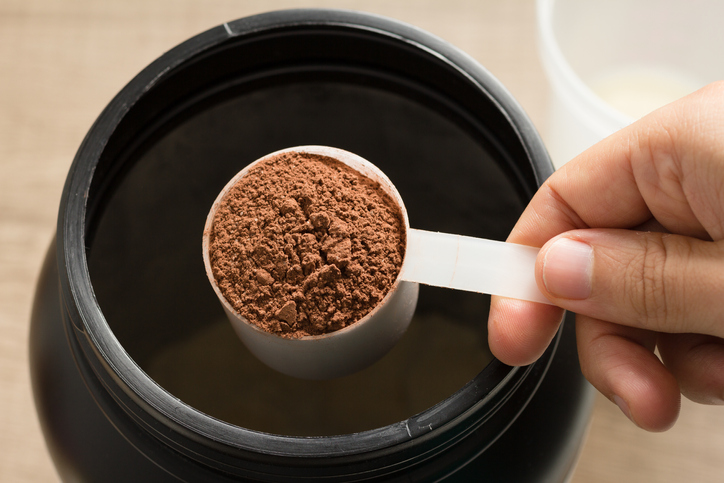Yes, You Can Overdose On Caffeine. Here’s What You Need To Know

By Joy Stephenson-Laws, J.D., Founder
In shocking news, a personal trainer and father of two in the U.K. named Thomas Mansfield died from a caffeine overdose after consuming an amount of a caffeine powder supplement equating to 200 cups of coffee. According to BBC News, Mansfield used kitchen scales to calculate the amount of powder he was consuming. Tragically, a miscalculation cost him his life. He was just 29-years-old. The coroner said the cause of death was “caffeine toxicity.”
“Caffeine is used by some gym-goers, with some fitness websites recommending it for improving sports performance in certain doses,” BBC reports.
(To read about how caffeine might amp up your workout, check out this pH Labs blog).
“However, experts have warned that when taking powders there is a risk of consuming over the recommended amount.”
The report says that after consuming the powder, Mansfield clutched his chest and complained that his heart was beating very fast. He went to lay down and began foaming at the mouth. His wife called an ambulance, and paramedics tried to resuscitate him for 45 minutes.

We all have the ability to walk in any health or supplement shop (or order online) and pretty much purchase anything we want. So many products promise faster weight loss results, better skin and hair or an effective appetite suppressant. It may be tempting to take these supplements, but we don’t always know the quality of the products, what exactly is in them and how to properly take them. This is why I always advise seeking the help of a competent healthcare practitioner when it comes to incorporating any supplement in your proactive healthcare regimen.
According to the BBC report, the man in this tragic story had a kitchen scale with a weighing range of two to 5,000 grams. His intention was to measure out 60 to 300 milligrams (which was the recommended dose). The bag of caffeine powder he purchased was 100 grams. The director of the company where Mansfield bought the supplements said that the powder should be weighed to two decimal places in milligrams. He also said that there are scales designed to weigh such small amounts. To make matters worse, when Mansfield bought the caffeine powder, the bag in which it came did not include scoops for measuring. So as you can probably imagine, with all of these variables, any one of us could have made the same miscalculation.
“A post-mortem examination showed Mr Mansfield had caffeine levels of 392 mg per litre of blood,” according to BBC.
“Caffeine levels would typically be two to four milligrams per litre if someone had drunk a cup of filter coffee.”
To give you a bit more perspective, the National Institutes of Health (NIH) states that a caffeine blood concentration between 80–100 mg/L is considered lethal (may cause issues such as seizures and cardiac arrhythmia). So Mansfield was way above the lethal limit.
“In recent years, the risk of caffeine intoxication has increased due to the more widespread availability of analgesics, CNS stimulant medicine and dietary supplements at shops, health stores and e-markets,” reports the NIH.
In Australia, a 21-year-old man died after consuming a protein shake with too much caffeine powder.
“The sale of pure caffeine for personal use was banned in Australia in 2019 after a report found a single teaspoon of the powder - equivalent to 50 cups of coffee - contained 5,000 milligrams of the drug and could cause cardiac arrest,” according to this report.
Even though the sale of this product is now illegal, an online retailer was selling this powder to the public for $200. What is so terrifying about this issue is that young people have easy access to it. Add this with the societal pressure of needing the “perfect body,” I fear that this issue will continue unless we are proactive.
There is even a very disturbing trend called “dry scooping,” which is essentially consuming pre workout powders without water.
“Most powders are packed with caffeine and other stimulants, plus various vitamins and nutrients. They’re designed to supercharge your system and provide energy for a workout,” according to Cleveland Clinic.
“Traditionally, pre-workout powder is added to water and consumed about a half-hour before putting your muscles to the test. Diluting the powder helps pace your body’s absorption of the product. Plus, it’s much easier on the tummy.”
Furthermore, “Dry scooping essentially floods your system with caffeine with one swallow. Your blood pressure and heart rate may skyrocket as your body takes in the stimulant, particularly as you start exercising.”
Be proactive about caffeine overdose.
If you are a parent, it is important to discuss caffeine overdose with your kids. If you know someone who is taking supplements, tell them about the risks of caffeine powders and supplements.
There are also much better ways to attain your workout and fitness goals. There is not one supplement that will provide more benefits than good consistent nutrition. To learn how to fuel your body for physical fitness, check out this pH Labs blog. It is also imperative to take a comprehensive nutrient test in order to determine if you have any nutrient imbalances or deficiencies. If you do (and so many of us do), a competent healthcare professional can help you make tweaks to your diet and may recommend a quality, safe supplement that you can take in a safe manner.
Enjoy your healthy life!
The pH professional health care team includes recognized experts from a variety of health care and related disciplines, including physicians, attorneys, nutritionists, nurses, and certified fitness instructors. This team also includes the members of the pH Medical Advisory Board, which constantly monitors all pH programs, products, and services. To learn more about the pH Medical Advisory Board, click here.







